Explore 5 Indian cities leading the way in eco-tourism, setting a sustainable trend for travelers. Discover more!
The world is changing, and so is the way we travel. Forget about those carbon-heavy vacations
focused solely on luxury. Nowadays, more and more travellers are looking for experiences that are not only enjoyable but also beneficial for the environment and the local communities they visit.
Eco-tourism, with its focus on sustainability and responsible travel, is gaining serious traction in India. Several cities are stepping up their game, working hard to become beacons of eco-friendly living and tourism. Let's take a look at five such destinations that are showing the way forward:
Kochi, Kerala: Backwaters and Beyond
Kochi, the Queen of the Arabian Sea, is a city that beautifully blends its rich history with a modern, eco-conscious outlook. The city's commitment to sustainability is evident in a lot of initiatives, from promoting responsible waste management to preserving its natural heritage.
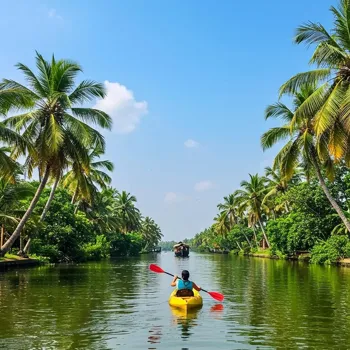
One of the most famous examples is the efforts to clean up and conserve the Vembanad Lake, the largest lake in Kerala, which is a key part of the Kochi's ecosystem and a huge draw for tourists.
Houseboats are now encouraged to adopt eco-friendly practices, using solar power and proper waste disposal systems. Local communities are also involved in eco-tourism projects, offering visitors authentic experiences while simultaneously benefiting from the tourism industry.
This includes promoting traditional crafts and supporting local businesses. Kochi is also promoting the use of public transport and cycling to reduce its carbon foot print, making it easier for tourists to explore the city in a more eco-friendly way.
Kochi's embrace of eco-tourism extends beyond its backwaters. Fort Kochi, with its historic buildings and charming streets, is witnessing a rise in eco-friendly accommodations and restaurants.
These establishments prioritize sustainable practices, such as using locally sourced ingredients and implementing energy-efficient technologies.
The city's authorities are also actively involved in promoting awareness about environmental conservation among residents and tourists, through campaigns and educational programs.
Kochi's success lies in its comprehensive approach, which integrates environmental protection, community involvement, and sustainable tourism practices. By showing that tourism and sustainability can co-exist, Kochi is setting a stellar example for other cities in India.
The city promotes renewable energy sources and provides incentives for businesses to adopt green practices. This holistic approach is making a tangible difference, making Kochi a greener and more beautiful place to visit.
Gangtok, Sikkim: Himalayan Harmony
Nestled in the Himalayas, Gangtok, the capital of Sikkim, is naturally blessed with stunning landscapes and abundant biodiversity. But it's not just about natural beauty; Gangtok is actively working to preserve its environment while promoting responsible tourism.
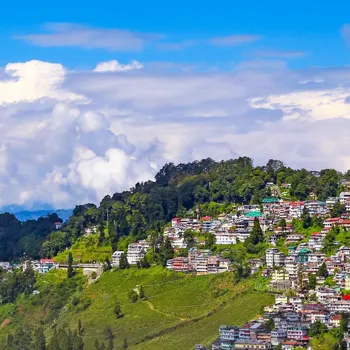
The city has banned plastic bags and encourages the use of eco-friendly alternatives. Sikkim, as a state, has embraced organic farming, and this commitment extends to Gangtok, where you will find restaurants serving delicious, locally sourced organic food.
The state government is also promoting homestays in rural areas, allowing visitors to experience the authentic Sikkimese culture while providing economic opportunities for local communities.
Gangtok places a strong emphasis on waste management, with efficient systems for collecting and processing waste. The city also promotes eco-friendly modes of transportation, such as walking and cycling, to reduce pollution.
Educational programs and awareness campaigns encourage both residents and tourists to adopt sustainable practices.
Gangtok's sustainable practices extend beyond waste management and organic farming. The city is actively involved in conserving its forests and wildlife.
The Khangchendzonga National Park, a UNESCO World Heritage Site, is a prime example of Sikkim's commitment to biodiversity conservation.
Eco-tourism initiatives in and around Gangtok focus on promoting responsible trekking and wildlife viewing, ensuring that these activities do not negatively impact the delicate ecosystem.
The city also encourages the use of renewable energy sources, such as solar power, to reduce its reliance on non-renewable resources. By integrating environmental conservation with tourism promotion, Gangtok is creating a sustainable model that benefits both the environment and the local community.
The careful balance between development and conservation is what sets Gangtok apart, making it a true eco-tourism destination.
Mysore, Karnataka: Heritage with a Green Heart
Mysore, the cultural capital of Karnataka, is famous for its rich history, magnificent palaces, and vibrant traditions. But beneath the surface, Mysore is also steadily embracing sustainable practices.
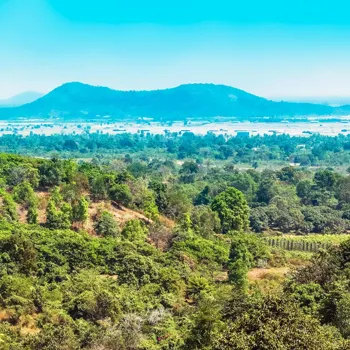
The city has been actively promoting waste segregation and composting, reducing the amount of waste that ends up in landfills. Mysore is also known for its beautiful gardens, which are maintained using eco-friendly methods.
The city is also investing in public transport and promoting cycling to reduce traffic congestion and air pollution.
Several organizations are working to create awareness about environmental conservation among residents and tourists, encouraging them all to participate in making Mysore a greener city.
By combining its heritage with a commitment to sustainability, Mysore is proving that it can be a modern, eco-conscious city without sacrificing its cultural identity.
Mysore's commitment to sustainability is evident in its efforts to conserve water and promote energy efficiency.
The city has implemented rainwater harvesting systems in many buildings and is promoting the use of water-efficient fixtures. Mysore is also encouraging the use of solar water heaters and LED lighting to reduce energy consumption.
The city's authorities are working closely with local businesses to promote sustainable practices, such as reducing waste and using eco-friendly packaging. The focus on education and awareness is helping to create a culture of environmental responsibility among residents.
By preserving its heritage while embracing sustainable practices, Mysore is setting a positive example for other cities in India.
Indore, Madhya Pradesh: From Cleanest City to Greenest Destination
Indore has been consistently ranked as one of the cleanest cities in India, and this achievement is a testament to its commitment to waste management and sanitation. But Indore's ambitions go beyond just cleanliness; the city is now focused on becoming a truly sustainable destination.
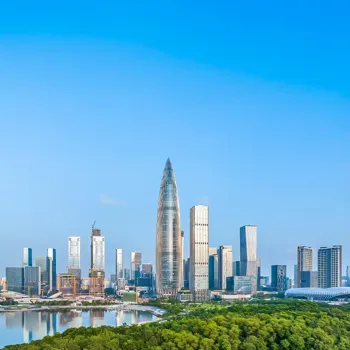
Indore has implemented a comprehensive waste management system, including door-to-door collection, segregation, and processing of waste. The city is also using innovative technologies to convert waste into energy, reducing its reliance on fossil fuels.
Indore is promoting the use of public transport and encouraging people to switch to electric vehicles. Several initiatives are underway to improve air quality and reduce pollution. The city is also working to conserve its water resources and promote rainwater harvesting.
Indore's transformation into a sustainable destination is driven by strong political will and active citizen participation. The city's authorities have implemented strict rules and regulations to ensure compliance with environmental standards.
Residents are actively involved in waste segregation and composting, and they are also participating in tree plantation drives and clean-up campaigns. The city is promoting eco-tourism by developing green spaces and parks, and by showcasing its sustainable practices to visitors.
Indore's journey from a polluted city to one of the cleanest and greenest in India is an inspiring story that demonstrates the power of collective effort and determination.
Panaji, Goa: Balancing Tourism and Conservation
Goa is known for its beaches and vibrant nightlife, but Panaji, the capital city, is also making efforts to promote sustainable tourism. The city is working to manage its waste effectively and reduce pollution. Panaji is promoting the use of public transport and encouraging people to cycle and walk.
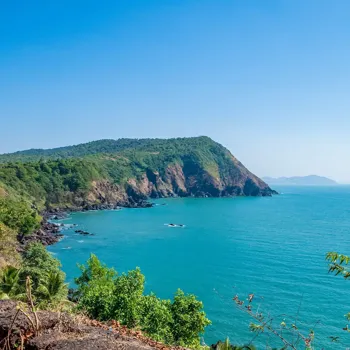
Several organizations are working to protect Goa's coastal ecosystems and conserve its biodiversity. The city is also promoting eco-friendly accommodations and activities, encouraging tourists to make responsible choices.
Panaji is striving to find a balance between tourism development and environmental conservation; by doing this, it will ensure that Goa's natural beauty is preserved for future generations.
Panaji's efforts to promote sustainable tourism are focused on minimizing the negative impacts of tourism on the environment and local communities. The city is encouraging tourists to respect local customs and traditions, and to support local businesses.
Panaji is also promoting responsible water usage and energy conservation among tourists. The city is working to educate tourists about Goa's unique biodiversity and the importance of protecting it.
By promoting sustainable practices and raising awareness, Panaji is helping to create a more responsible tourism industry in Goa.
These five cities are just a few examples of how India is embracing eco-tourism and sustainable living.
As awareness about environmental issues grows, more and more cities are likely to follow suit, creating a greener and more responsible tourism industry across the country.
AI Generated Content. Glance/InMobi shall have no liability for the content















